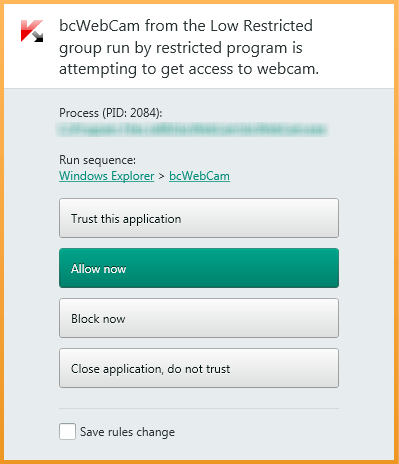We love webcams for their ability to break down communication boundaries. For example, with Skype, you can have a job interview, a language class or a conversation with your grandmother without leaving your apartment. However, have you ever imagined that you could be seen on camera without your permission? Unfortunately, it is possible: there is a chance that cybercriminals could access your webcam to watch you, and steal your personal data in the process.
Kaspersky Lab engineers suggest that it is best to be on the safe side and eliminate the possible vulnerabilities of your webcam. The 2015 version of Kaspersky Internet Security features a function that can block access to your video stream. So how is it implemented?
Kaspersky Internet Security categorizes all of the applications installed on your computer in the following groups based on their estimated trustworthiness:
- Trusted application
- Low restricted
- High restricted
- Untrusted
By default, Kaspersky Internet Security blocks webcam access for all High restricted and Untrusted applications. If a Low restricted application attempts to gain access to the webcam, the antivirus will prompt you for an action.
For example, if Skype (generally considered to be Trusted) tries to access your webcam, Kaspersky Internet Security will grant access, but the user will see the following notification:
If a Low restricted application tries to gain control of your webcam, Kaspersky Internet Security will notify you of the suspicious activity and will await a response:
For more information on webcam protection in Kaspersky Internet Security 2015, see the respective Kaspersky Knowledge Base article.
 #tips
#tips




 Tips
Tips